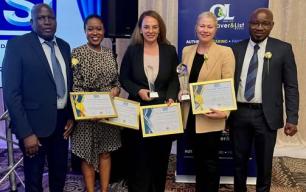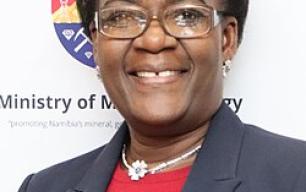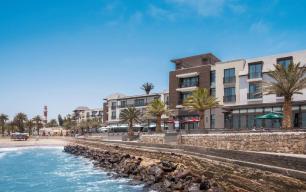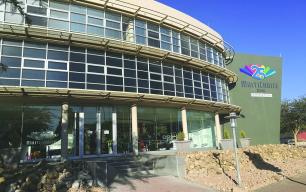Nandi-Ndaitwah sounds drum on wildlife protection

Erasmus Shalihaxwe
President Netumbo Nandi-Ndaitwah, has urged African leaders to do more in protecting wildlife and the ecosystem that supports over 70 million people across the continent.
Nandi-Ndaitwah made the call this week during the Africa Keystone Protected Area Partnership reception for International Conservation Caucus Foundation (ICCF) African Wildlife Foundation, that took place in New York, United States of America.
She said Africa has long led the way in protecting nature, not just for the current generation, but for the future too. The head of State explained that the Namibian constitution mandated the government to develop policies and laws to ensure sustainable utilisation of bio-diversity for the use by the current and future generations.
According to her, over 46 percent of Namibian land is under conservation, and this includes national parks, communal conservancies, community forests and tourism concessions. According to Nandi-Ndaitwah, this is a remarkable achievement, made possible only because Namibians believe in the co-existence of environment projection and development to be at the heart of conservation efforts.
‘’Our national parks, including five of the 162 Keystone Protected Areas, are fully integrated with more than 100 community-run conservancies and forests. Together, these protect vast and diverse landscapes stretching from the Zambezi River in the northeast of the country to the Skeleton Coast in the west,” Nandi-Ndaitwah indicated.
“They do more than conserving biodiversity. They bring jobs, revenue and dignity to the communities who live with wildlife every day, often exposed the risks of human-wildlife conflict. Thus, enabling our people to take care of our biodiversity,’’ she added.
The President further explained that Namibia’s story is proof that conservation in Africa is not in conflict with economic progress, but a key enabler. She said, because of protected areas, Africa risk losing more than wildlife, the continent risk losing the ecosystems that support 70 million people across the continent, the rainfall that feeds farms and the nature-based economies that drive rural development.
‘’That is why the Keystone Protected Area Partnership matters. This partnership aligns fully with Namibia’s model and our values. It recognizes that to conserve Africa’s natural heritage, we must unite African governments, communities, donors and NGOs in a shared, lasting commitment. Namibia is proud to join this partnership. We see it as an essential mechanism to deliver on the Global Biodiversity Framework, the AU Biodiversity Strategy, the Kigali Call to Action and our shared 30x30 goals.’’
She further added that African leaders must be clear with their policies in protecting wildlife, because now is the moment.
“As Africa’s population grows and development accelerates, leaders must act decisively to protect what cannot be replaced, and ensure that the next generation inherits a continent rich in life, rich in opportunity, and rich in hope. Hence, the need for the sustainable utilisation of biodiversity.”
Speaking at the same occasion, American Senior Fellow of the Council on Foreign Relations Jendayi Frazer, said Namibia is a strong proponent of regional integration.
He added that through the Southern African Development Community (SADC), the Southern African Customs Union (SACU), and the African Continental Free Trade Area (AfCFTA), Namibia is committed to building resilient intra-African trade systems.
‘’Namibia recently dispatched its first export using African Continental Free Trade Area framework, from the port of Walvis Bay. This marks a tangible step toward realizing the promise of a unified continental market enabling small states like ours to scale production and access new opportunities,” noted Frazer.
“Namibia values its longstanding relationship with the United States, built on cooperation in public health, education, governance, and sustainable development. We see particular scope for deeper collaboration in energy, critical minerals, digital innovation, and capacity building,’’ she maintained.
- 651 views










Comments